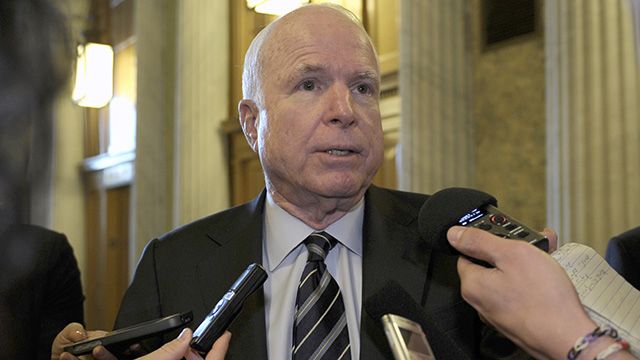Every week Moyers & Company producer Gail Ablow shares her must-read money and politics stories.

Waning Influence? Part 1: Tracking the “Unlobbyist”→ The Center for Responsive Politics launched a new series on its Open Secrets blog this week. They are investigating an apparent decline in the number of active lobbyists — from 12,433 in 2012 to 12,279 in 2013. After tracking the post-lobbying careers of almost 1,800 people, the CRP sleuths discovered that nearly half of these former lobbyists have not retreated at all: they work at the same firms, hold the same or similar titles and the money spent on lobbying by those firms hasn’t shown the same signs of decrease. In part one of this series, Dan Auble concludes that many of the “unlobbyists” are choosing to fly below the radar. Some of these former lobbyists seem to be following the lead of the staffers and legislators who step through the revolving door to work for lobbying firms — wielding their influence, but officially doing just enough other work to avoid having to register as lobbyists.
Industry Behind Anti-Wage-Hike Letter → A statement went out last week, signed by more than 500 prominent economists and written under the name of Vernon Smith, a Nobel Prize-winning economist at Chapman University in California. They urged Congress to reject President Obama’s proposed minimum wage increase (to $10.10 per hour) calling it “a poorly targeted antipoverty measure.” Most of the economists who lent their signatures, it turns out, were an unwitting front for a lobbying organization. As Eric Lipton reported in The New York Times, the National Restaurant Association drafted the statement, asked a former Treasury Department official to approach Professor Smith, then paid him to use a database of conservative economists in search of supporting signatures. The statement was then distributed through economistletter.com, a website set up by a DC lobbying firm. While a number of the economists, all of whom stand by the argument in the statement, don’t necessarily feel hoodwinked, readers should.
Going Rogue: Once a Reformer, John McCain Exploits Campaign Finance Loophole → Senator John McCain (R-AZ), once known for his efforts to tighten campaign finance loopholes, is now diving through them like everyone else. The staff at CREW (Citizens for Responsibility and Ethics in Washington) report that in 2011 McCain did some slick maneuvering in order to transfer his mailing list from his campaign committee, Friends of John McCain, to his leadership PAC, Country First. Current rules dictate that contributions to PACs from campaign committees are subject to a $5,000 limit. The mailing list, however, was valued at nearly $3 million. So what’s a law-abiding campaign reformer to do? McCain’s team converted the campaign committee into a leadership PAC, Patriot First, which allowed them to transfer funds between the two without limit. The mailing list was passed along the very next day. Less than four months later, the new PAC was terminated and Friends of John McCain was reestablished as a campaign committee. If you can’t beat ’em…
Revenge of the Republican consultants → After the last election, top Republican consultants were ridiculed by the tea party for spending hundreds of millions of dollars and failing to win the White House and the Senate. Politico’s Kenneth Vogel has a fascinating analysis of the 10 key firms that spearheaded Romney’s campaign — and collected $1 billion in combined fees. If the measure is how much they won for themselves, they can now laugh at the tea party. According to Vogel, they are among “the highest-grossing and best-positioned players in Republican politics.” For their 2014 work, the firms and their consultants have already been paid nearly $20 million through January. “The consultants are like cockroaches,” conservative pundit Erick Erickson tells Vogel, “they’re always going to survive.”
Ripple Effects: Will McCutcheon Amplify the Role of Big Donors? → Any day now, the Supreme Court may deliver its decision in McCutcheon v. FEC, which will determine whether a limit on aggregate campaign contributions violates the First Amendment right to free speech. Edwin Bender, the executive director of the National Institute on Money in State Politics compared the giving patterns in states that have contribution limits with those that have none. He concluded that a broad ruling in favor of McCutcheon would further increase the influence of big donors and hurt small donors.
In case you missed it, more money links:
A campaign inquiry in Utah is the watchdogs’ worst case By Nicholas Confessore, The New York Times
RNC chair calls for reversal of ‘soft money’ ban to finance conventions By Matea Gold and Philip Rucker, The Washington Post
Koch brothers are outspent by a labor force millions of times their size, but… By Paul Blumenthal and Dave Jamieson, The Huffington Post
Aides aiming for pins: staffers look to join 1 in 7 members who have worked on Hill By David Hawkings, Roll Call
The newest dark money power player: American action network By Zachary Roth, MSNBC


